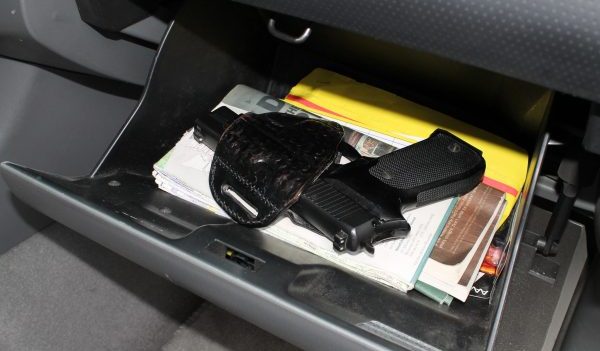
A federal court in Illinois has found in favor of a fired power company worker who had a gun stored in his private vehicle. (Dave Workman)
A federal appeals court in Illinois has ruled in favor of a long-time employee of an Illinois power company who was fired in 2016 after a search of his private vehicle uncovered a firearm.
Judge Michael Stephen Kanne issued the ruling in the 7th U.S. District Court of Appeals in a case involving a man named Bryan Knox in a case against Ameren Illinois. His employment had been terminated by the power company after he was involved in some “heated arguments” on the job with a supervisor.
At the time, other employees advised the supervisor that Knox was a gun owner and was “known to carry concealed weapons on a regular basis,” according to the court. Knox was approached
company officials, a union representative and sheriff’s deputy and asked that his vehicle be searched. He allowed the search and a firearm was discovered.
Knox’s truck was parked in the company’s parking lot.
The matter went to arbitration when Knox appealed his dismissal, and the arbitrator found in his favor. While the decision recognized that Knox had violated company policy by having the gun in his truck, he also determined that the Illinois Concealed Carry Act protected Knox because he was licensed to carry under state statute.
Ameren Illinois filed suit to overturn the arbitrator’s decision and the District Court did so last year. But the appellate court reviewed the decision and found for Knox in mid-October.
Knox began working at Ameren Illinois in 1998, court documents said. In 2015, he became a crew leader but the arguments with his supervisor occurred in June 2016. On June 27 he was terminated for violating the company’s Workplace Violence Policy. The next day, the union filed a grievance on his behalf. When the parties could not reach an accord, the agreed to binding arbitration.
Arbitrator George R. Fleischli held a hearing in March of last year and found for Knox in July, deciding at the time that the company did not have just cause to fire Knox, although he could have been disciplined for challenging the supervisor’s authority, the court later determined.



